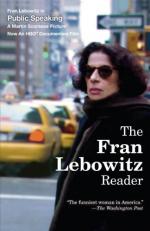|
This section contains 4,296 words (approx. 15 pages at 300 words per page) |

|
SOURCE: "Charles Fourier: The Burgeoning of Instinct," in The Prophets of Paris, Cambridge, Mass.: Harvard University Press, 1962, pp. 197-248.
In the following excerpt, Manuel examines Fourier's arguments against civilization and the philosophy of his contemporaries.
Death to Philosophy and Its Civilization
Fourier's basic method involved a deliberate total denial of all past philosophical and moralist schools. Ecart absolu, he called it. Its definition came early in the Théorie des quatre mouvements, a methodological addendum to the Cartesian doubt. "I assumed that the most certain means of arriving at useful discoveries was to remove oneself in every sense from the methods followed by the dubious sciences which never contributed an invention that was of the remotest utility to society and which, despite the immense progress of industry, had not even succeeded in preventing poverty; I therefore undertook to stand in constant opposition to these sciences." The accumulation of...
|
This section contains 4,296 words (approx. 15 pages at 300 words per page) |

|


